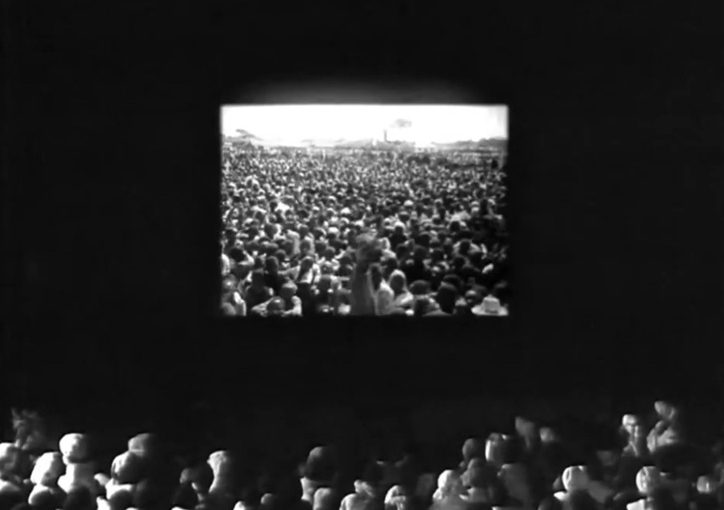Mozambique: Comings and Goings — Ricardo Rangel
Cinema played a “fundamental role” in the creation of Mozambican identity – filmmaker

For illustration purposes only. Screen grab from 'Kuxa Kanema: The Birth of Cinema', by Margarida Cardoso/ Footage from National Film Archives]
In an interview with Lusa, filmmaker Licínio Azevedo argues that cinema played a fundamental role in the construction of Mozambican identity after independence, 50 years ago, when the seventh art “cemented national unity”.
“At the time, cinema played a fundamental role in the construction of the country’s identity. More than 90% of the population was illiterate, had no access to radio, newspapers or television, so cinema was created with the mission (…) of cementing national unity,” declared the filmmaker, who holds dual Brazilian and Mozambican citizenship.
In an effort to spread nationalist ideas, Samora Machel, the first President of Mozambique after independence (1975), created the then National Film Institute (INC) in 1976, bringing together Mozambican, French, Portuguese, Cuban and, above all, Brazilian filmmakers.
Ruy Guerra, a Mozambican born in 1931 in Lourenço Marques, now Maputo, and living in Brazil, stands out in the creation of the INC.
After independence, Guerra participated in the birth of Mozambican cinema, recruiting Brazilian filmmakers and collaborators for Mozambique and setting up the INC, with the idea that it would be possible to make films with scant resources.
This project, which would later train the country’s main movie directors, began the history of cinema in Mozambique. Its main achievement was “Kuxacanema”, a system of short documentaries with “nationalist” content that guaranteed national production.
“‘Kuxacanema’, for example, was a kind of current affairs newspaper. That’s what used to be shown in movie theatres. Before fiction films, they would show a newsreel lasting 15 or 20 minutes. There was no television, and many people in Mozambique went to the cinema not to see the main film, but to see Kuxacanema,” Azevedo relates.
With Kuxacanema, Mozambique became a reference point in Africa, leading filmmakers from countries such as South Africa and Namibia, which were still fighting against apartheid, to be inspired by the Mozambican idea, as opposed to the fiction films sponsored by countries such as France, which influenced African cinema at the time.
The strategy made movie theatres more widespread throughout the country, along with the adoption of “mobile cinemas”, ensuring that productions reached rural areas.
“Kuxacanema was shown in cinemas all over the country. In Maputo, there were more than 20 (…). Audiences would gather in the villages,” Azevedo added.
Today, the capital has only two cinemas, a limitation that reveals the challenges that Mozambican cinema faces today.
“In fact, they seem like two different countries. Mozambique is not the country it was right after independence. A completely different thing. It was an examplar of film production in the region. […] There was no independent production because everything was concentrated in the INC, but things worked. Now, the INC has disappeared as a production company, and it is always a total struggle to make a film,” he laments.
Licínio de Azevedo is among the main film directors in Mozambique and, among his many films, “Comboio de Sal e Açúcar” stands out. The Mozambican epic, a co-production between the Portuguese Ukbar Filmes and the Mozambican Ébano Multimédia, has already received several international awards.
Born in Brazil in 1951 and based in Mozambique, Licínio de Azevedo has been involved in the country’s cinema since the 1970s.
He is the author of more than 20 films, including “A Safra do Diabo” (1988) one of the first films he shot, with former Frelimo fighters, and “Desobediência” (2002), shot on video with ‘non-actors’.
Licínio de Azevedo lived in Portugal and Guinea-Bissau before coming to Mozambique, where he worked with Ruy Guerra, Luís Carlos Patraquim, Jean Rouch and Jean Luc Godard.












Leave a Reply
Be the First to Comment!
You must be logged in to post a comment.
You must be logged in to post a comment.